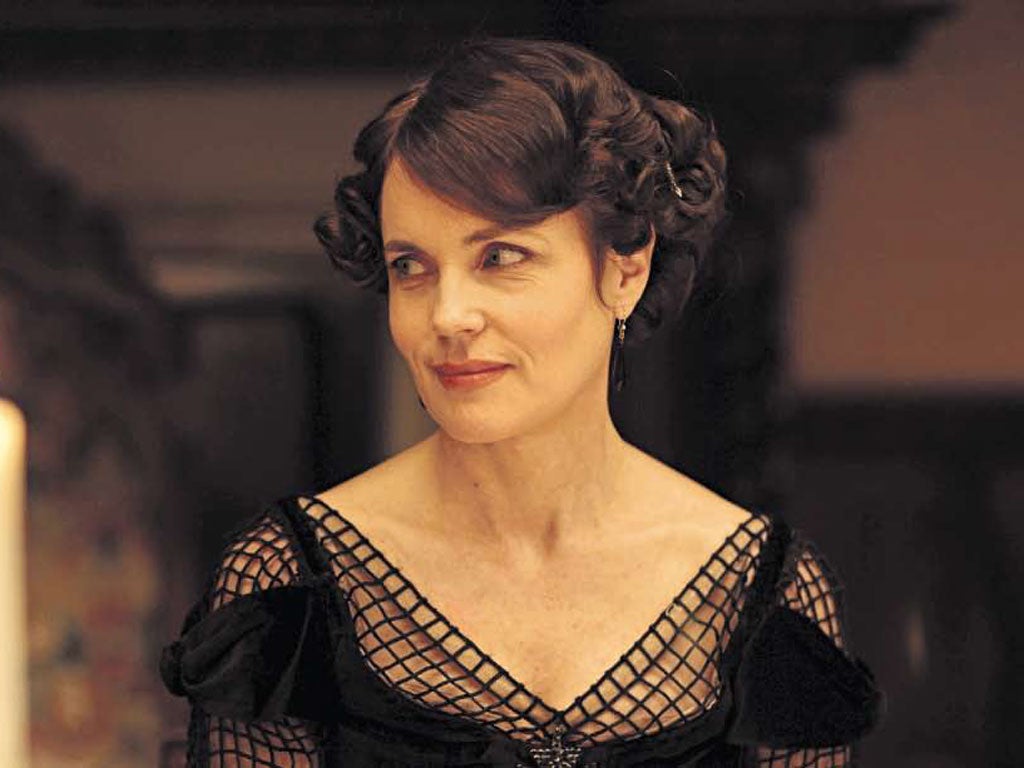David Lister: Downton makes a mockery of its own creator's prejudices

When the next series of Downton Abbey begins, it should have a new character – an aristocratic writer given to outlandish statements, spoken with utter certainty. Who better to play the part than the creator of Downton Abbey, Julian Fellowes?
This week he declared that American actors were too "contemporary" for period drama. He said: "I think our actors have a kind of understanding of period. For Europeans, the past is in them as well as the present, and I think they are at ease in that genre in a way that the Americans find harder. I think Americans are wonderful film actors – the best in the world – but they are a very contemporary race."
Let me introduce Mr Fellowes to two "contemporary" Americans, Shirley MacLaine who will appear in the new series of Downton, and Elizabeth McGovern, who has played Lady Grantham from the start. Ms McGovern is one of the most convincing performers in the drama, even if Mr Fellowes has somewhat underwritten her role. Did these two actresses slip his mind when he made his comments?
Mr Fellowes is certainly not alone in expressing such thoughts. It's a not uncommon view, especially in an age of too much casting-to-type, that actors can only play roles which fit in with their background. Yet if Americans are ill-equipped for costume drama, how does one explain the exquisite performances by Michelle Pfeiffer and Winona Ryder in the film adaptation of The Age of Innocence, directed by that most contemporary American Martin Scorsese?
Great actors have the ability and the imagination to cross oceans and traverse time. Costume drama isn't in the blood, nor is it part of a shared history, it's a result of research, imagination and empathy.
And it's not just in acting that the assumption is made that a shared history is necessary. How often does one hear that only German or Austrian orchestras can really interpret Beethoven and Brahms, or that only Russian musicians can do justice to the pain and power of Shostakovich? Those of us who witnessed the City of Birmingham Symphony Orchestra give such a thrilling rendition of Shostakovich's Leningrad Symphony at the Proms a few days ago will beg to differ.
The logic of Julian Fellowes's comments is that art can only be expressed by those belonging to the culture and tradition which they seek to explore. Meryl Streep could not have played Margaret Thatcher, nor Vivien Leigh Scarlett O'Hara, Dvorak could not have composed The New World Symphony, Canaletto could not have conveyed the glory of the Thames.
Meanwhile, I'd love to be a fly on the wall when Fellowes, McGovern and MacLaine next meet. He might hear a few "contemporary" phrases.
Cometh the hour, cometh the end. Hopefully
Two thoughts on theatre voiced at the Edinburgh Festival have stayed with me. The playwright Sabrina Mahfouz tweeted: "Even a long life means only 700,800 hours. Your whole life if you live to 80. This is why theatre shouldn't be more than an hour." The novelist Alexander McCall Smith wrote in The Independent: "Check the language in which the play is being presented. Three hours of drama in Polish or Chinese can be testing, if you do not speak Polish or Chinese." As someone who thinks too many plays are 20 minutes too long and we are afraid to criticise foreign-language drama, I agree.
How one BBC presenter is still Living in the Past
Newsnight's Gavin Esler (whose new book is reviewed on page 28) has revealed himself a fan of prog rock, and will host the 2012 Progressive Music Awards. "I grew up listening to bands ranging from King Crimson and Jethro Tull to Colosseum," he said. There's an unfortunate childhood. Esler shares my alma mater, the University of Kent, where such bands were fashionable long after they were fashionable, which might explain it. I'd like to see a Newsnight special with the presenters championing their tastes. Gavin could tell the world who Colosseum were and why. Kirsty Wark, to judge by her reverential interview with Madonna, is a fan of the queen of pop. Emily Maitlis possibly liked Eighties new romantics. Paxman, I suspect, was a secret glam-rock aficionado and put stars on his face when alone in his bedroom.
d.lister@independent.co.uk
twitter.com/davidlister1
Subscribe to Independent Premium to bookmark this article
Want to bookmark your favourite articles and stories to read or reference later? Start your Independent Premium subscription today.

Join our commenting forum
Join thought-provoking conversations, follow other Independent readers and see their replies